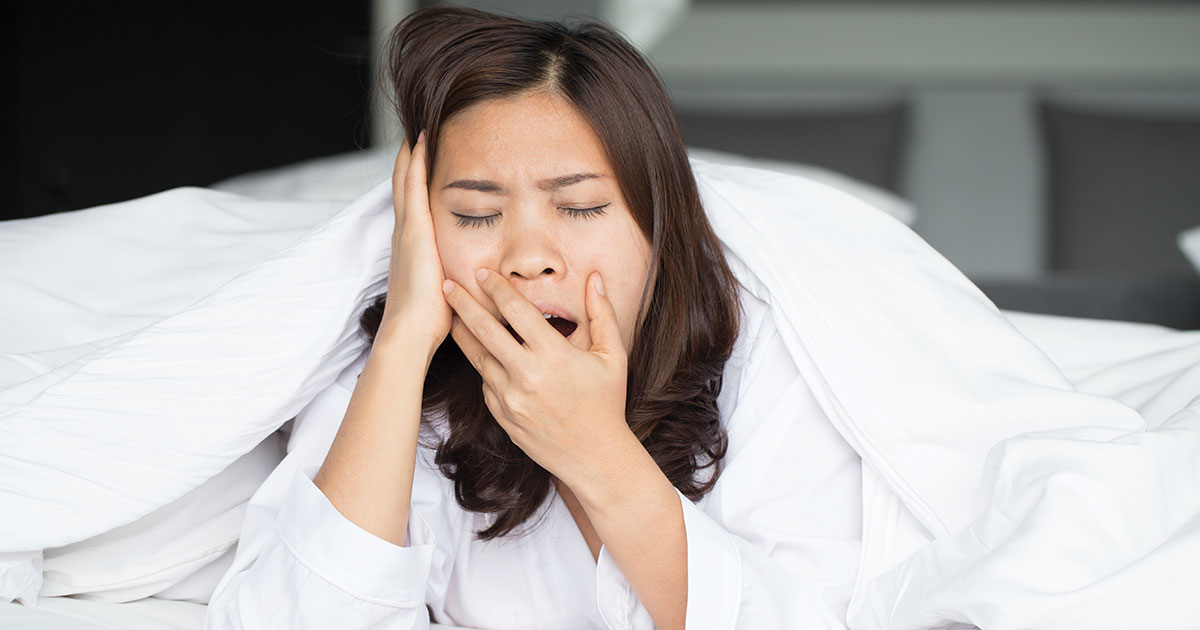We all have those nights – where we toss and turn and don’t get a full night’s rest. We dread the sound of the alarm the following morning and struggle to make it through the day without numerous cups of coffee.
There are many reasons why someone might have insomnia, or the inability to fall asleep or stay asleep, during the night. According to helpguide.org, some questions to ask yourself to determine whether or not you have insomnia are: Are you under a lot of stress? Are you depressed? Have you recently gone through a traumatic experience? Are you taking any medications that might be affecting your sleep? Is your sleep environment quiet and comfortable? Do you try to go to bed and get up around the same time every day? Psychological and medical problems are common roots of sleep issues. If you are unsure of why you aren’t able to sleep, consult with a doctor. However, there are simple changes you can make each night before hitting the hay. Continue reading below to find out how.
- Stick to a regular sleep schedule every day. Your biological clock has its own way of telling you when to go to sleep and when to wake up. Try helping it by going to bed and getting up at the same time each day, including on weekends. Sometimes it can be hard to get up if you’re tired, but do it anyway.
- Make sure your sleeping environment is quiet, dark, and cool. I’ll admit it. I’m one of those people who sleeps with a fan on every night, even during the winter. When a bedroom has noise, light, or an uncomfortable temperature, it can be hard to sleep. Besides using a fan, you may want to try a sound machine or earplugs, an eye mask, or blackout curtains.
- Limit screen time before bed. Try turning off all screens at least an hour before bed and don’t turn them on during the night. According to research, electronic screens consist of a blue light that will interrupt your body’s production of melatonin. Remove all habits of watching TV, using your phone, tablet, or computer, and read a book or listen to soft music.
- Avoid napping. Yes, as hard as it may be, don’t take naps during the day. A nap makes it more difficult to sleep at night, because it disrupts your sleep schedule. If you have to take one, sleep for only 30 minutes before 3 p.m.
- Avoid drinking too many liquids, caffeine, and alcohol before bed. All of these can interfere with your sleep cycle. For example, if you’re waking up at night to go to the bathroom due to drinking too many liquids, you aren’t able to get a full night’s rest. As for caffeine, the American Academy of Sleep Medicine suggests to stop drinking these beverages at least six hours before bedtime.
- Don’t force yourself to sleep. When you are restless, get up and go read, drink a cup of tea, or take a bath.
- Often, many people find themselves looking at the clock, counting down the hours until they have to wake up in the morning. Put your alarm clock in a drawer, at the opposite end of the room, or in another room. After all, they say out of sight, out of mind.
- Eat right during the day and at night. No one sleeps well on a full or empty stomach. Be careful as to what time you eat at night and make sure it is not too late. If you get hungry after dinner, have a light snack.
- Work out on a regular basis, at least three times a week, to help you sleep better. Just avoid exercising too close to bedtime.
Getting enough sleep can be a nightly struggle. However, using these tips, you might just get in a little more snooze time.



















